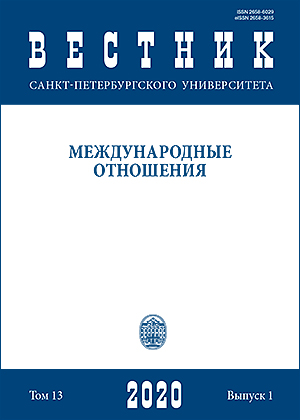Digital politics vs political digitalization
DOI:
https://doi.org/10.21638/spbu06.2020.104Abstract
The article is devoted to the issue of the digitalization concept when potentially applied to different spheres of social development and, first of all, to the political sphere in terms of digital economy. The usage of digital technologies in politics is analyzed through the prism of two discourses: digital politics as the extension of digital technologies in political relations and political digitalization based upon policy towards digital technologies in the economic and social sphere. Within the first discourse mechanisms are identified for articulating political interests through social networks (contraposition of twitter-diplomacy and twitter-revolution), e-petitions and on-line voting. Within the discourse of political digitalization, the composition of policy for digital economy development in the Russian Federation in terms of one of the key national priorities for 2018–2024 is analyzed, which is increasing the introduction of digital technologies in the economy and the social sphere. Also, it deals with the regulating activity of the government as a whole for such a policy, which mostly includes efforts to design and compose a national model for managing processes within the emerging digital context. Both discourses demonstrate the trend for a deeper synthesis of technological and social development processes, transforming into interconnected vessels with lesser dependency on any intermediary activity of traditional institutions. The growing influence of digital frameworks in world politics in general encourages the government to mobilize different available instruments for mitigating competition risks within the non-likely controllable sphere of new social relations.
Keywords:
digitalization, digital politics, digital diplomacy, social networks, national projects and programs
Downloads
References
References
Downloads
Published
How to Cite
Issue
Section
License
Articles of "Vestnik of Saint Petersburg University. International relations" are open access distributed under the terms of the License Agreement with Saint Petersburg State University, which permits to the authors unrestricted distribution and self-archiving free of charge.




